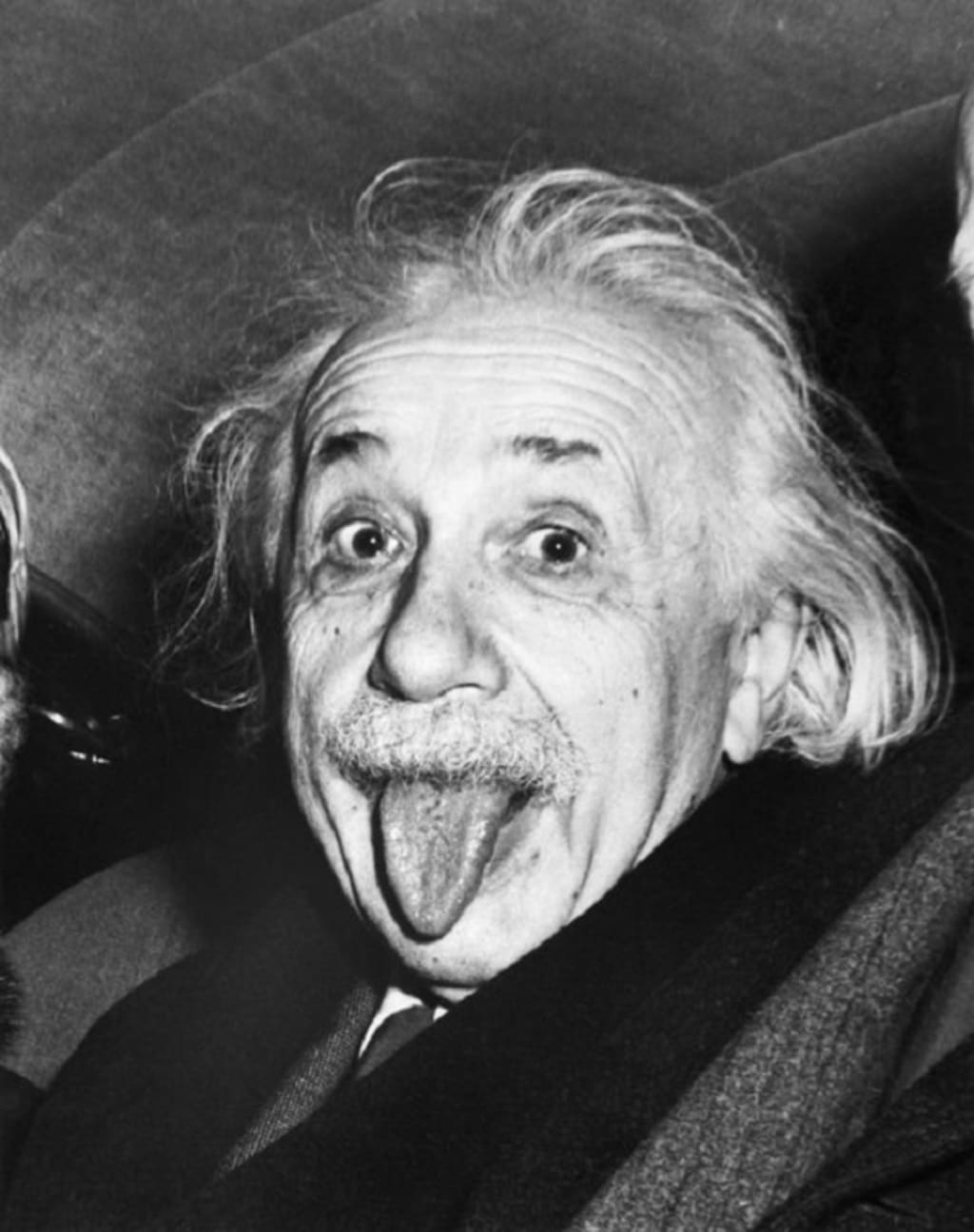Albert Einstein
A Revolutionary Mind in Science and Society

Albert Einstein’s name is synonymous with groundbreaking scientific discoveries and a profound impact on our understanding of the universe. Among his most famous contributions are the iconic equation \(E = mc^2\) and the development of the theory of relativity. These revolutionary ideas challenged and reshaped conventional notions, broadening the horizons of physics and beyond. His work did not stop there; he gained further renown for his identification of the photoelectric effect, a breakthrough that earned him the Nobel Prize for Physics in 1921.
Einstein's contributions to science were multifaceted and transformative. His formulation of both the special and general theories of relativity revolutionized the field of physics. Prior to Einstein, Isaac Newton’s laws of motion and gravitation had been the bedrock of scientific understanding for over two centuries. Newtonian mechanics, which described the motion of objects and the forces acting upon them, were widely accepted as definitive explanations of the physical world. However, Einstein's theories introduced radical new concepts that expanded and in some cases completely redefined these established ideas.
The special theory of relativity, published in 1905, introduced the concept that the laws of physics are the same for all non-accelerating observers and that the speed of light in a vacuum is constant, regardless of the observer's motion. This theory led to the realization that time and space are not absolute but relative and interconnected in a four-dimensional space-time continuum. One of the most famous implications of this theory is the equation \(E = mc^2\), which reveals the equivalence of mass and energy. This equation has had profound implications for both theoretical physics and practical applications, including the development of nuclear energy.
A decade later, in 1915, Einstein published his general theory of relativity, which extended the principles of special relativity to include acceleration and introduced a new understanding of gravity. According to this theory, gravity is not a force between masses as Newton had postulated, but rather a curvature of space-time caused by the presence of mass and energy. This revolutionary idea was confirmed by the observation of the bending of light from stars by the Sun’s gravity during a solar eclipse in 1919, catapulting Einstein to international fame.
Beyond relativity, Einstein made significant contributions to other areas of physics. In statistical mechanics, he explained the Brownian motion of particles, providing empirical evidence for the existence of atoms and molecules. His work in electrodynamics addressed the interaction of electromagnetic fields and electric charges. In optics, he contributed to the quantum theory of light, which described light as both a wave and a particle, leading to the development of quantum mechanics. One of the key phenomena he explained was the photoelectric effect, where light incident on a material can eject electrons from its surface. This discovery was pivotal in the development of quantum theory and earned him the Nobel Prize in 1921.
Einstein also grappled with the fundamental aspects of quantum mechanics, which led to the famous Einstein-Podolsky-Rosen paradox (EPR paradox) in 1935. This thought experiment challenged the completeness of quantum mechanics by demonstrating that quantum theory could lead to what Einstein called “spooky action at a distance,” where entangled particles appear to instantaneously affect each other’s state, regardless of the distance separating them. The EPR paradox sparked debates that have continued to shape the field of quantum mechanics.
While Einstein’s scientific achievements are well-documented and celebrated, his contributions extended beyond the realm of science. He was a vocal advocate for civil rights and social justice. In the 1940s, after fleeing the oppressive Nazi regime in Germany in the early 1930s, Einstein became an active member of the National Association for the Advancement of Colored People (NAACP). He worked alongside prominent civil rights leaders, including W.E.B. Du Bois, and used his influence to speak out against racial discrimination and injustice. Einstein famously referred to racism as a “disease” and believed that the fight against racism was as critical as his scientific endeavors.
Einstein’s advocacy for civil rights was rooted in his own experiences of anti-Semitism and his humanitarian principles. He recognized the parallels between the persecution faced by Jews in Europe and the systemic racism experienced by African Americans in the United States. His involvement in the civil rights movement was an extension of his belief in the interconnectedness of all people and his commitment to justice and equality.
In addition to his work with the NAACP, Einstein supported numerous causes aimed at promoting peace and human rights. He was a pacifist who spoke out against war and militarism, advocating for disarmament and international cooperation. His commitment to peace was exemplified by his involvement in the formation of the International Rescue Committee, which helped refugees fleeing from conflict and persecution.
Einstein’s legacy is a testament to the power of intellect and compassion in shaping the world. His scientific discoveries have had a lasting impact on our understanding of the universe, while his advocacy for civil rights and social justice has inspired generations to fight for a more equitable and just society. Albert Einstein remains a towering figure in both the annals of science and the history of human rights, embodying the spirit of inquiry and the quest for truth in all its forms.
About the Creator
Enjoyed the story? Support the Creator.
Subscribe for free to receive all their stories in your feed. You could also pledge your support or give them a one-off tip, letting them know you appreciate their work.






Comments
There are no comments for this story
Be the first to respond and start the conversation.